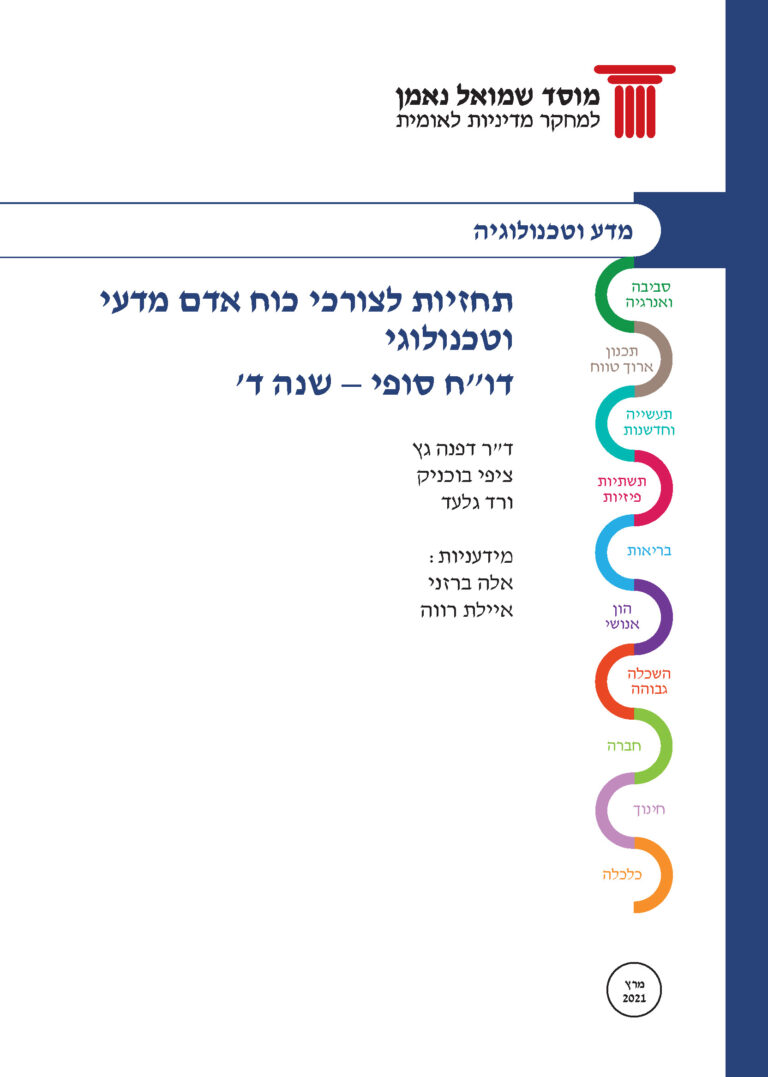This study was conducted as part of a four-year tender for the National Council for Research and Development in the Ministry of Science and Technology.
The objective of this study was to execute forecasts of the needs of scientific and technological personnel for selected fields.
The current work consists of two parts:
The first part includes indicators for the scientific and technological labor market in Israel. The purpose of the chapter was to provide an overview of human resources (high school education, higher education, and employment) and their contribution to the needs of the scientific and technological labor market in Israel.
The second part examined what are the manpower needs for ten emerging technology that relevant to Israel.
The ten technologies are: agrotech and precision agriculture, photonic and integrative photonics, 3D Printing of advanced materials, precision medicine and genomics, energy storage, smart cities, artificial intelligence, data science and smart robotics, alternative food sources, satellite communication and Bio-Convergence.
The report includes for each technology: a review of the technology in Israel and in the world, an examination of the manpower needs and whether there are gaps Between the required manpower and the existing for the coming years. To summarize, the emerged workforce needs from all the reviews of the ten technology were analyzed.
An analysis of the ten technologies shows that the required training in more than half of the technology is: engineering/computer science and information systems, electrical engineering and mechanical engineering. More professions, which required for several technologies are: systems engineering, data science (including bioinformatics), materials engineering, and training related to the combination of biology, medicine and technology-biomedical engineering and biotechnology.
For all the ten technologies it was found that the training currently available is lacking the technological manpower needs.
The findings of the study show that most of the technologies we examined are multidisciplinary fields. Therefore, in order to engage, research, and develop in those technologies there is a need for skilled workers with diverse knowledge and training from different disciplines.
The main insights and recommendations from this research are regarding the need to add academic programs, strengthen education in the education system in certain fields, strengthen academic-industrial collaborations in manpower training and develop the existing manpower as part of Life Long Learning.












